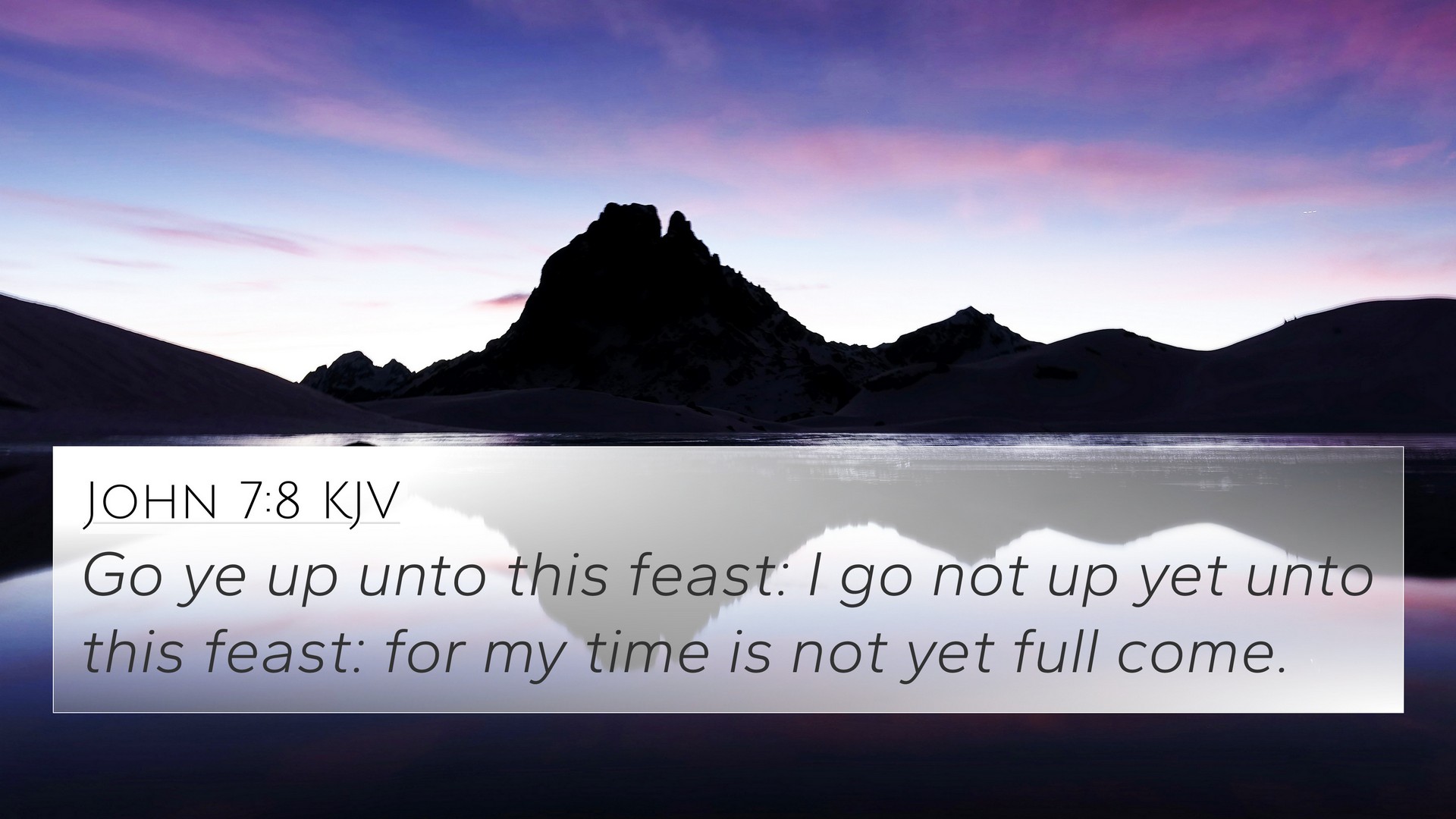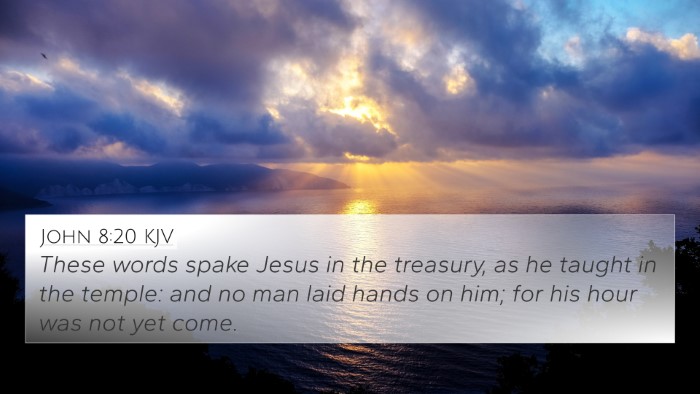John 7:8 states, "Go ye up unto this feast: I go not up yet unto this feast; for my time is not yet full come." This passage encapsulates a critical moment in the ministry of Jesus, offering insights into both His purpose and timing throughout his mission on Earth.
In this verse, Jesus is responding to the brothers who were urging Him to attend the Feast of Tabernacles in Jerusalem. He reveals that while they can go, He will not attend at that moment because His time has not yet arrived. This aspect of divine timing is significant and speaks to various biblical themes regarding God's plan.
Understanding John 7:8
-
The Timing of Jesus' Ministry:
Jesus emphasizes the concept of timing in His ministry—an important theme throughout the Gospels. His decision not to go at that particular moment was rooted in divine instruction rather than personal preference, illustrating that both events and actions in the spiritual journey are under divine timing (Matthew Henry).
-
Contrast with Personal Ambitions:
The suggestion from Jesus' brothers to attend the feast indicates a contrast between personal ambitions and the divine mission. They wanted Jesus to achieve public recognition, whereas He prioritized His calling (Adam Clarke).
-
The Feast of Tabernacles:
Understanding the significance of the Feast of Tabernacles illuminates the context of His statement. This event commemorated the Israelites' journey in the wilderness and their dependence on God, showcasing Jesus as the fulfillment of that dependence (Albert Barnes).
Bible Verse Cross-References
- John 2:4 - Jesus also speaks of His time not yet being at hand while at the wedding in Cana.
- John 5:30 - Jesus speaks of His dependence on the Father’s will in timing and action.
- Acts 1:7 - Reflects on the sovereignty of God in determining times and seasons.
- John 7:6 - Jesus explains that His brothers’ desire for Him to display Himself publicly doesn't align with His mission.
- Ecclesiastes 3:1 - There is a time for everything ordained by God, resonating with Jesus’ statement.
- Galatians 4:4 - "When the fullness of time had come, God sent forth His Son," underscoring God’s perfect timing.
- Matthew 26:18 - Jesus again references His timing concerning the Passover feast.
Thematic Connections in the Bible
This verse prompts a deeper exploration into the theme of God's timing and intervention throughout Scripture, demonstrating how divine purposes often clash with human desires. The following connections illustrate this theme:
-
Divine Timing: The importance of timing appears in the life of Joseph, whose journey was divinely orchestrated when the time was fulfilled (Genesis 41).
-
Jesus' Approach to Feasts: Throughout the Gospels, Jesus’ attendance at feasts often highlights His mission, contrasting with the expectations of the people (Mark 14:12).
-
Supernatural Control: Other biblical instances, such as Daniel 2:21, remind readers that God changes times and seasons, which ties back to Jesus’ claim of His appointed time (Daniel 2:21).
-
Preparation for Events: Ezekiel 12:25 displays a similar message of preparation for prophecy and fulfillment as it relates to God’s timing, much like Jesus preparing the way for His ministry.
Conclusion: Reflections on John 7:8
John 7:8 serves as a powerful reminder of the importance of recognizing and waiting upon God's timing in our lives. Through this understanding, believers can learn to trust that God's plans, while often delayed according to human standards, unfold perfectly aligned with His will. Such themes find echoes and parallels throughout Scripture, enriching one’s understanding of how to navigate the wilderness of faith while awaiting divine timing.








